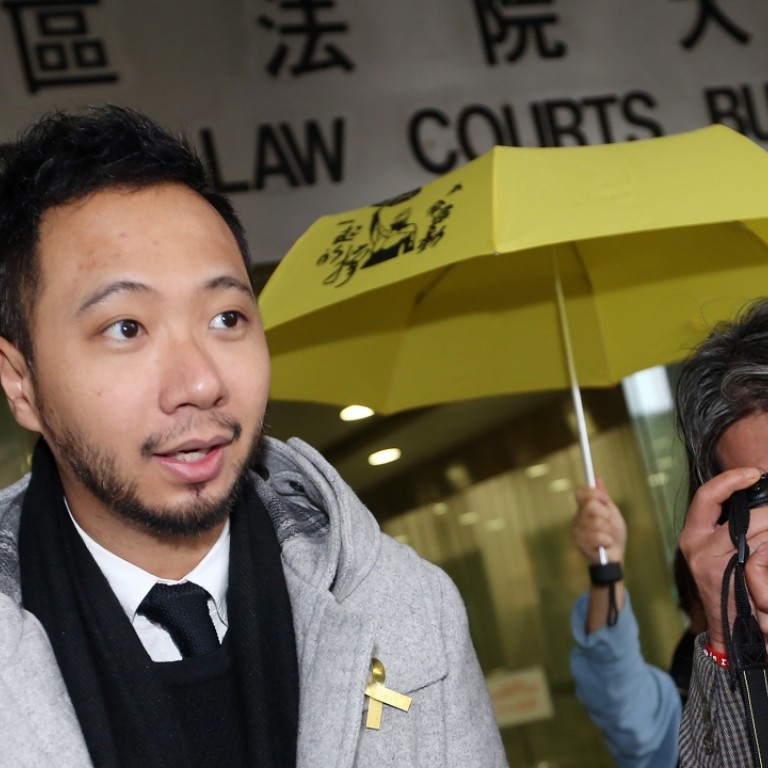
No need for media to hand over raw footage of confrontation between Ken Tsang and police, rules Hong Kong judge
Judgment also calls force’s request for identities of cameramen ‘misconceived’
Police requests for unedited footage showing the “subduing” of activist Ken Tsang Kin-chiu near Central during the 2014 pro-democracy Occupy protests were all rejected by a High Court judge on Tuesday.
“There is no basis for believing that any general footage covering the whole of Tamar Park would be of ‘substantial value to the investigation’,” ruled Mrs Justice Judianna Barnes Wai-ling.
She was referring to the probe into a number of separate cases to be heard, in which seven policemen face charges after Tsang was allegedly beaten up in Tamar Park on October 15, 2014. Tsang himself also faces a charge of assaulting and resisting police officers. Video footage of the incident was widely circulated at the time.
READ MORE: Hong Kong policemen charged in Ken Tsang Occupy beating to plead not guilty
In December last year, more than a year after the incident, police applied for a court order requiring five media organisations to produce footage of the events.
The force asked for footage held by TVB, Apple Daily, Asia Television, i-Cable and Now TV parent company PCCW showing the chain of events, starting with Tsang allegedly splashing “liquid” on officers during the confrontation, which lasted for 23 minutes, the court was told earlier.
Police also wanted to know the identities of the cameramen who shot the footage.
Except for ATV, whose stance was unknown, representatives of the other four media organisations opposed the production of the materials requested by police.
In her written judgment, Barnes said she was not satisfied that it was in the public interest to grant a production order for the full and unedited footage, after balancing the importance of the freedom, integrity and impartiality of the press against the need to combat crime.
The judge questioned the need to obtain the unedited recordings, which had already been uploaded and were now in the public domain, while saying that she would not regard press freedom as some sort of paramount consideration.
READ MORE: Media companies not obliged to hand over footage of Ken Tsang apprehension by Hong Kong police, judge says
On the request for the identities and personal particulars of the makers of the recordings, Barnes said she failed to see how the information could be interpreted so as to fall within the scope of “journalistic material”, which could be ordered by court to be produced under the Interpretation and General Clauses Ordinance.
“Since the identity and personal particulars of the maker of the recordings do not amount to journalistic material, an application for the production of the maker’s identity and personal particulars ... [is] misconceived,” she said.
She ruled that the reasons applied to all media organisations involved in the case.

